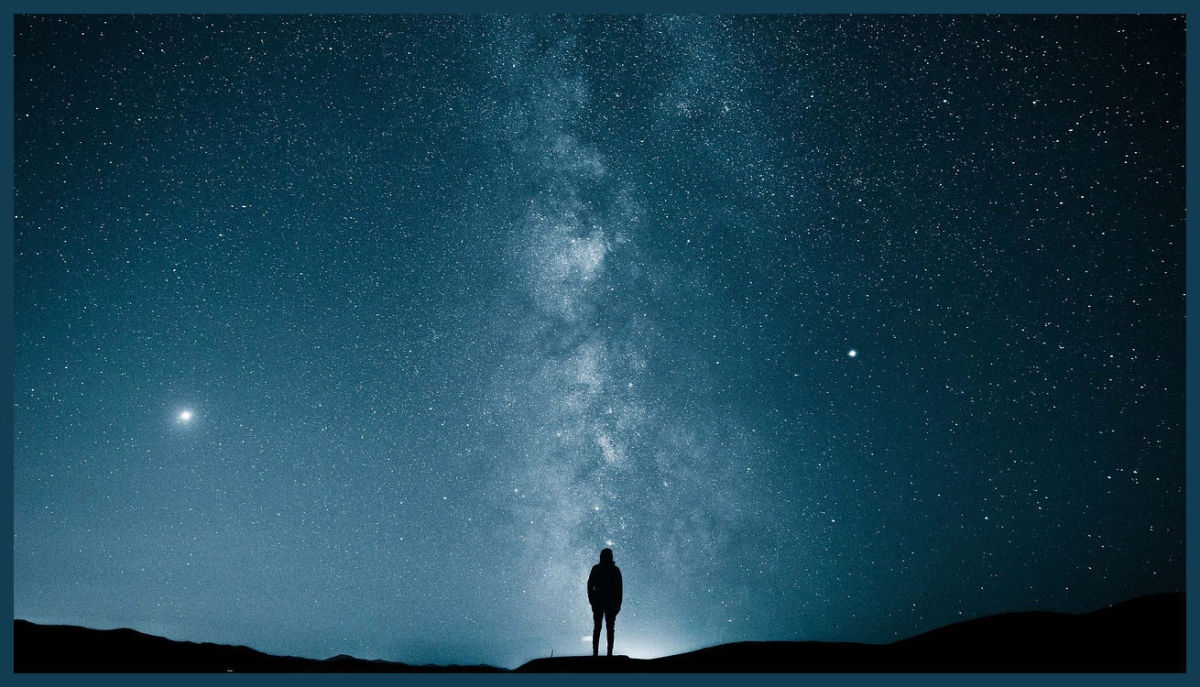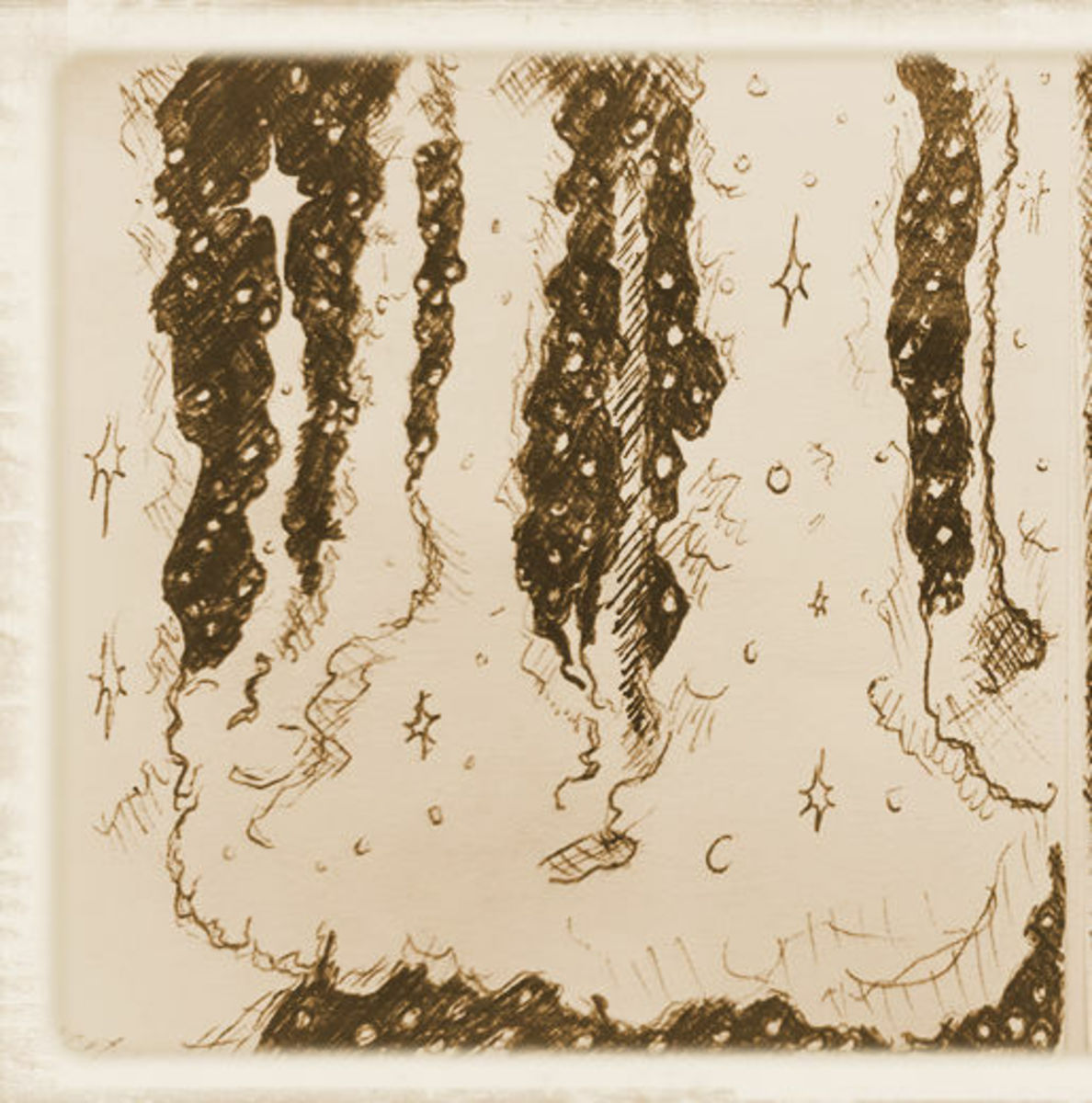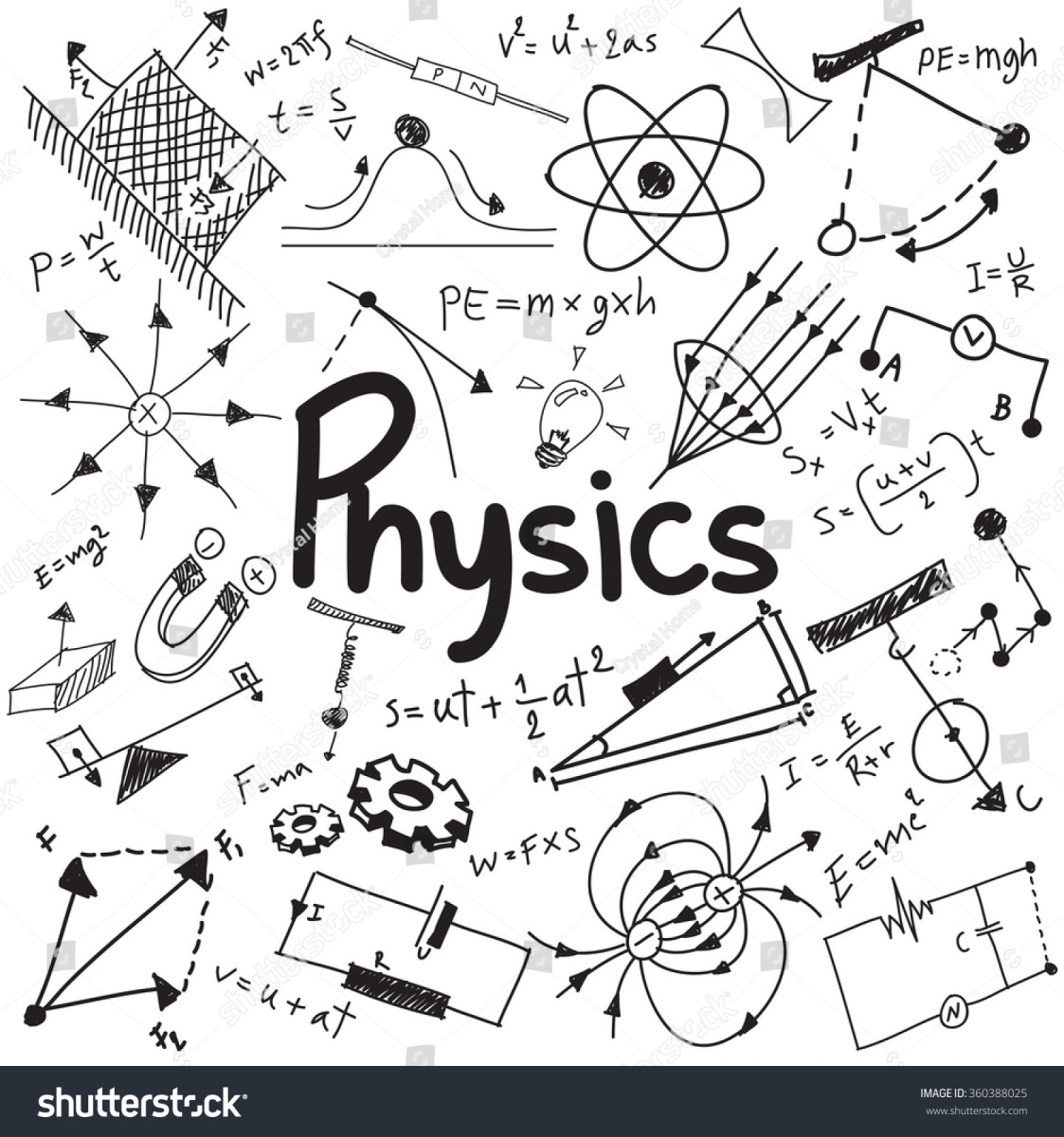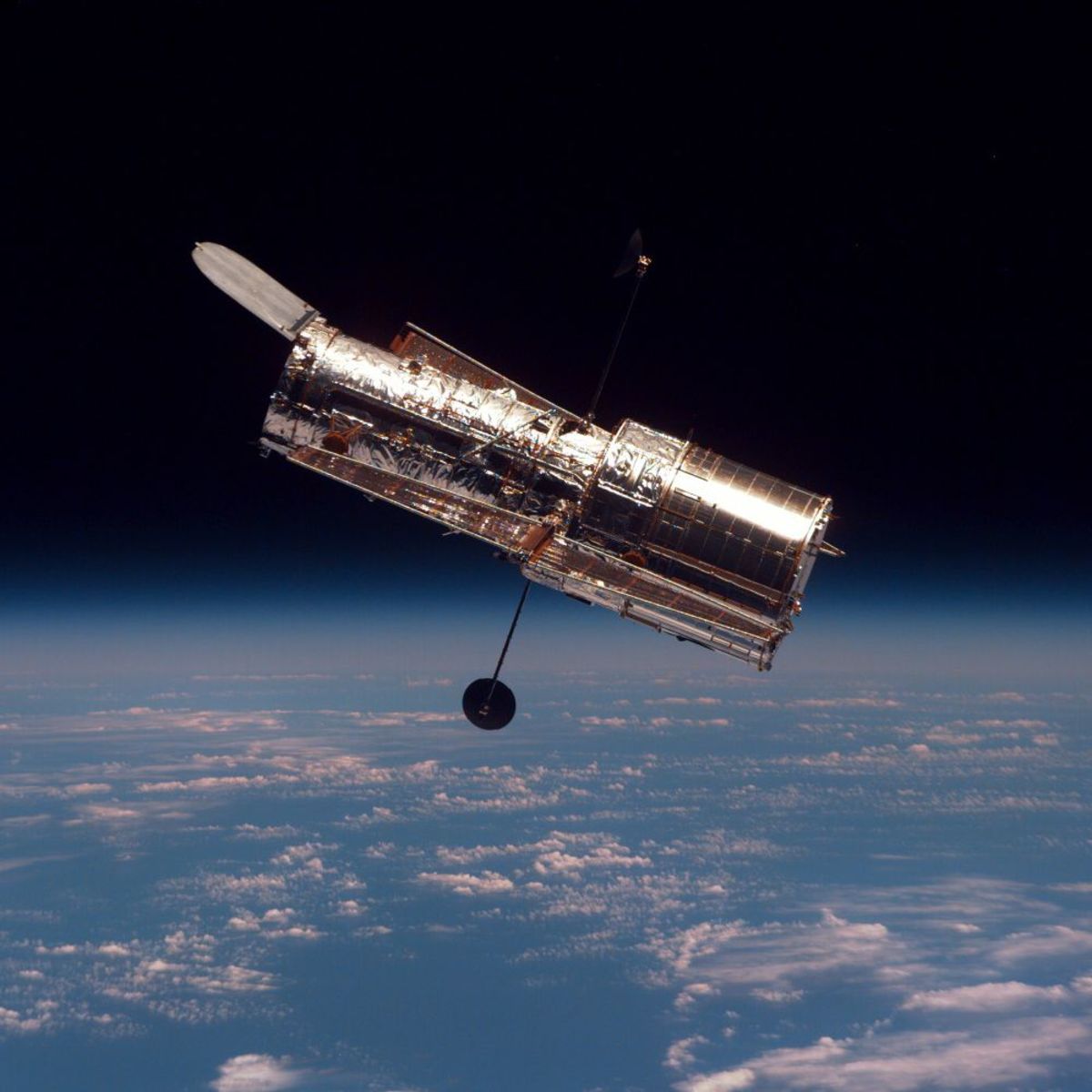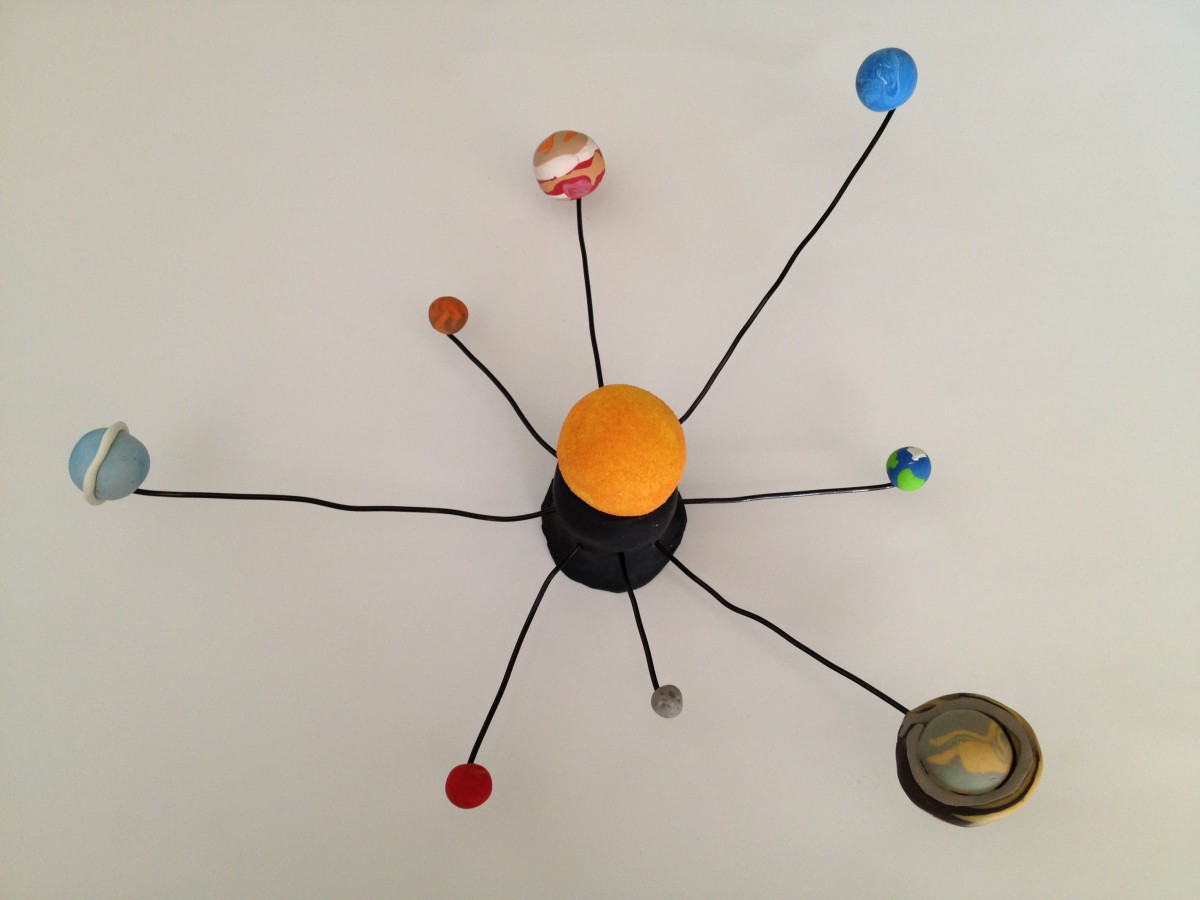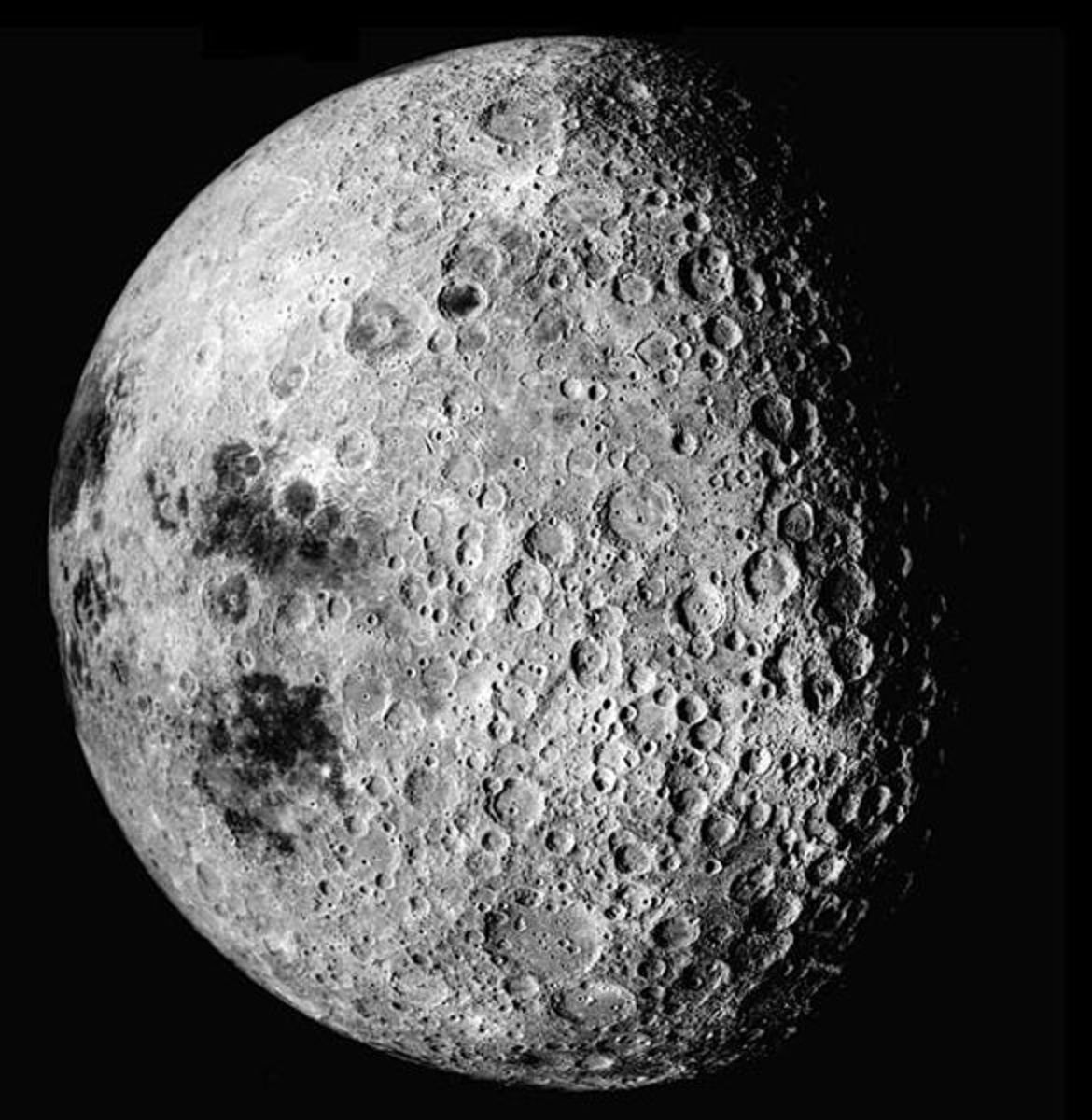Dark Energy Discovery: Universe's Expansion is -- Accelerating
January 2013 Update:
Physicists continue to probe the future of the universe. A new theory holds that dark energy may be tied up in cosmic domain walls, according to Physics World, a website from the Institute of physics.
Researchers from Canada, the US and Poland are exploring ideas about a kind of force field that contains dark energy. The research is preliminary and attempts are underway to test the theory by attempting to measure possible effects from the theorized cosmic walls with instruments called magnetometers.
Universe Expansion Speeding Up
The 2011 Nobel Laureates in Physics made the shocking announcement that the universe is expanding an an accelerating rate in 1998. Based on measurements of supernovae from the ground and in space -- including data from the Hubble space telescope -- they concluded that instead of slowing down, the universe's expansion is speeding up.
A chilling implication of the discovery is that "this mysterious force (dark energy) could be the death of the universe, tearing even its atoms apart," according to HubbleSite, NASA's Hubble telescope website.
This observation of acceleration challenged the accepted belief that the universe's expansion was slowing because of gravity. In the previously accepted version of how the universe operates, the universe came into being with the Big Bang and has continued to expand -- with its expansion slowing in response to gravity.
Their theory of what's causing the universe's expansion to accelerate is the presence of Dark Energy.
Hubble Space Telescope
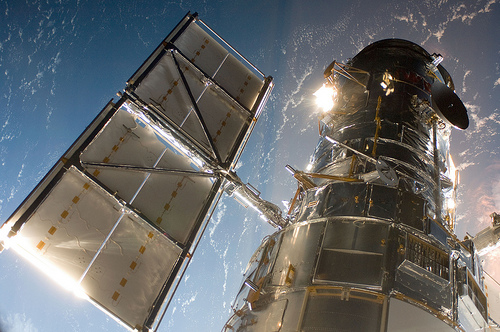
Hubble Space Telescope Observations: Dark Energy Affects the Geometry of the Universe
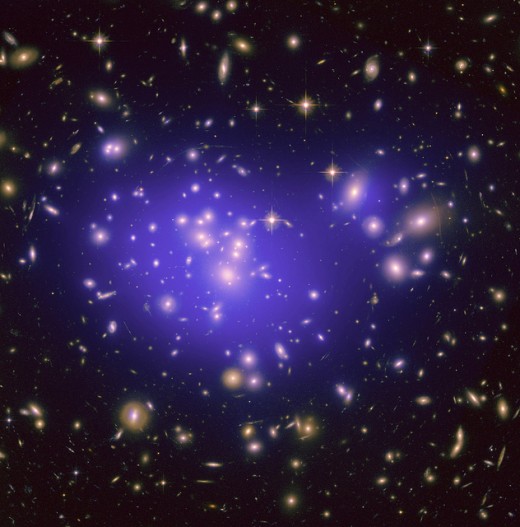
2011 Nobel Laureates in Physics
Saul Perlmutter, Brian Schmidt and Adam Riess share the 2011 Nobel prize in Physics for their groundbreaking work.
They tracked la supernovae -- exploded stars -- observing that they appeared dimmer than they should be. When these Nobel prize winners observed that supernovae appeared dimmer, suggesting they're farther away than they should be to fit with the previous understanding of how the universe works, they continued testing their observations. They concluded that, despite all previous beliefs to the contrary, the universe's expansion is accelerating.
Perlmutter is a senior scientist at Lawrence Berkeley National Laboratory. Riess teaches at Johns Hopkins University and is an astrophysicist at the Space Telescope Science Institute. Schmidt, of the Australian National University, also made calculations that verify these findings. The three share the discovery and the credit -- their work has changed the view of the universe, and leaves science with many crucial questions to answer.
Supernovae Occur About Every 50 Years in Our Galaxy
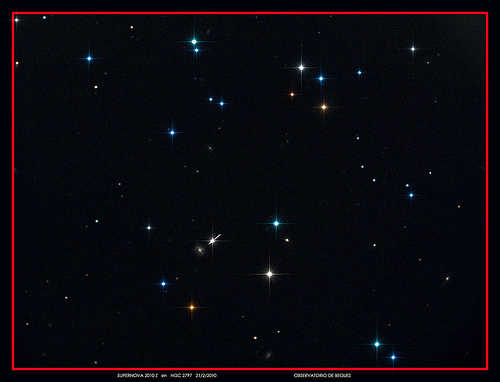
What is Dark Energy?
The new theory of how the universe works holds that the universe is made up primarily of Dark Energy. This mysterious Dark Energy may account for approximately 74 percent of the universe. Dark Matter accounts for most of the rest -- and normal matter, such as the planet earth, accounts for less than 10 percent of the universe. This theory puts things in a whole different perspective.
Based on their observations and painstaking calculations of measurements made over 7 billion light-years, the astronomers concluded that Dark Energy propels the universe's expansion and that this explains why it's speeding up, in defiance of gravity. The researchers expected their findings to show the rate of expansion slowing down, and were surprised that the data showed the opposite of what they expected to find, UPI reports. They theorized that Dark Energy creates an anti-gravity effect, countering the expected effect of gravity on the expanding universe.
The Nobel Assembly credit the 2011 Nobel Laureates in Physics with helping "to unveil a Universe that to a large extent is unknown to science,” "Popular Science" reports.
NASA Hubble Telescope Picture
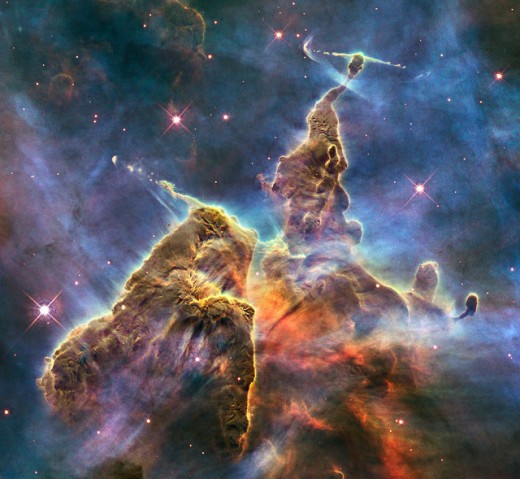
Earth: Our Tiny Bit of the Expanding Universe
Cosmological Vocabulary
Supernova: An exploding star. A large star can collapse at its core and release a massive amount of energy. Supernovae, plural.
The Big Bang: Theory that the universe began with a massive explosion. The universe expanded at exactly the right rate to allow life to develop. If it had expanded only a tiny bit slower, it would have sputtered out and if it had expanded a little bit faster, it would have exploded, according to PBS. The existence of life came about because of conditions that favored life.
Hubble Telescope: The Hubble Telescope provides images from space. It allowed the researchers to check their data with images that have less dust than images taken from earth. Access to images from the Hubble Telescope cleared up the question of whether the dimness of the supernovae could be from dust.
Further Reading
- Dark Energy, Dark Matter - NASA Science
"What is dark energy? More is unknown than is known — we know how much there is, and we know some of its properties; other than that, dark energy is a mystery — but an important one. Roughly 70% of the Universe is made of dark energy." - HubbleSite - Hubble Discoveries - Dark Energy
- Dark Energy Wins Nobel Prize in Physics | Popular Science
- UPI NewsTrack Health and Science News - UPI.com
Dark energy discovery wins physics Nobel
Author's Note -- Dark Energy: 2011 Nobel Laureates Discovered Universe's Expansion is -- Accelerating
Cosmology and its influence on cultures -- from the earliest astronomical observations of ancient civilizations to the contemporary achievements and controversies of space exploration -- fascinates me.
How we learn from and interpret the knowledge of where we are in the universe has a profound impact on what it means to be human.
If every person on this planet stopped to think for even one minute every day that the universe could come to an end -- and treated each other and the precious opportunities of this lifetime accordingly -- imagine.
Along with celebrating the achievements of the Nobel laureates in physics and the history of discovery from the earliest telescopes to the Hubble space telescope that played a crucial role in the cosmology-shaking discovery of Dark Energy, what hit me hardest was the possibility that this racing expansion destroy the universe. This new area of discovery and theory raises huge questions -- not only for astrophysicists, but for all of us.
Thanks for reading. Please vote this hub up and share it.
-- Trent Adams, aka HikeGuy, California

